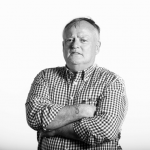COUNCIL MAKES DARWIN A BETTER PLACE TO LIVE
City of Darwin is promising much more of the same over the next four years – more economic stimulus, more spending with local businesses, more community projects and more trees. Lots and lots of trees.


Lord Mayor Kon Vatskalis says the council wants Darwin to be an even better place to invest, work and live.
And not just in the city centre.
“In the past, the focus has been solely on the CBD,” he says. “But I want more and more improvements in the suburbs as well.”
Mr Vatskalis will probably go down in history as the man who made Darwin a prettier place.
The council planted 12,500 trees in the past two years and intends to plant a further 18,000 up to 2030.
The Lord Mayor wants to re-establish the Tree Committee to take another look at what trees to plant.
“I obviously like native trees but I’d also like more really colourful trees, like poincianas. They are not native but don’t damage the environment.”
Social media regularly carries favourable comments about the beautification of Darwin.
For instance, tourism identity Penni Tastula posted that the city was looking more attractive because of the council’s tree-planting drive.
And Mr Vatskalis says: “I heard a South Australian couple admiring one of our tree-lined streets and saying, ‘Why can’t we do this in Adelaide?’ That was a huge compliment.”
The Lord Mayor says trees are not only beautiful – they cool down Darwin.
“I want to see avenues of shade trees,” he says.
The council has a $95 million capital works budget this financial year and intends to spend most of it in Darwin, which makes it a major economic force in the city.
One of City of Darwin’s biggest projects is the multimillion-dollar redevelopment of Casuarina swimming pool as an aquatic centre.
The main pool, which was built to imperial measures and never met the demands of international competition, will be brought up to a metric Olympic standard.
The project will include a resort-style family pool.
Mr Vatskalis also wants to see a restaurant and, possibly, childcare centre included in the plans as part of his strategy for the council to ease the burden on ratepayers by cashing in on its extensive ownership of buildings and land.
“Casuarina pool has a very large car park,” he says. “We may one day be able to put that underground and build on top of it.
“I don’t want the council to always rely on ratepayers. We should make better use of our assets.
“The council is in good economic shape and I’d like to see rates go down one day.”
Other infrastructure work includes $2 million worth of repairs to much of Darwin’s 400 kilometres of stormwater drains.
Inspections by cameras found that some of the drains are collapsing and many are clogged with rubbish, including pushbikes and even a pistol, which was reported to police.
Last financial year, the counci funded many small community projects in the suburbs, including half-basketball courts and new toilet blocks.
About $5 million will be spent on keeping the popular program going.
Plans include improvements to Jingili Water Gardens and the upgrading of landscaping around shopping centres, such as Malak, Wagaman and Karama.
“Better landscaping makes the shopping centres more attractive to customers, which in turns encourages the owners to invest.”
The council’s 220 parks will continue to be properly maintained.
City of Darwin declared a climate emergency three years ago and has done much to increase recycling and power-generating methane gas production at the Shoal Bay waste depot.
“We are always looking at better ways to improve recycling. Shoal Bay will eventually fill up and close, but we can lengthen its life by putting less in it.”
Another major project is the redevelopment of the Civic Centre, which is costing $1 million a year to maintain as it ages.
“If the air-conditioning broke down it would up to $3 million to replace.”
City of Darwin is playing its part in closing the gap between Indigenous and non-Indigenous Australians.
Its efforts to help Aboriginal people help themselves, including by donating vehicles to remote communities, has been recognised in national parliament in Canberra.
“The council has a responsibility to show leadership in many ways,” Mr Vatskalis says.


